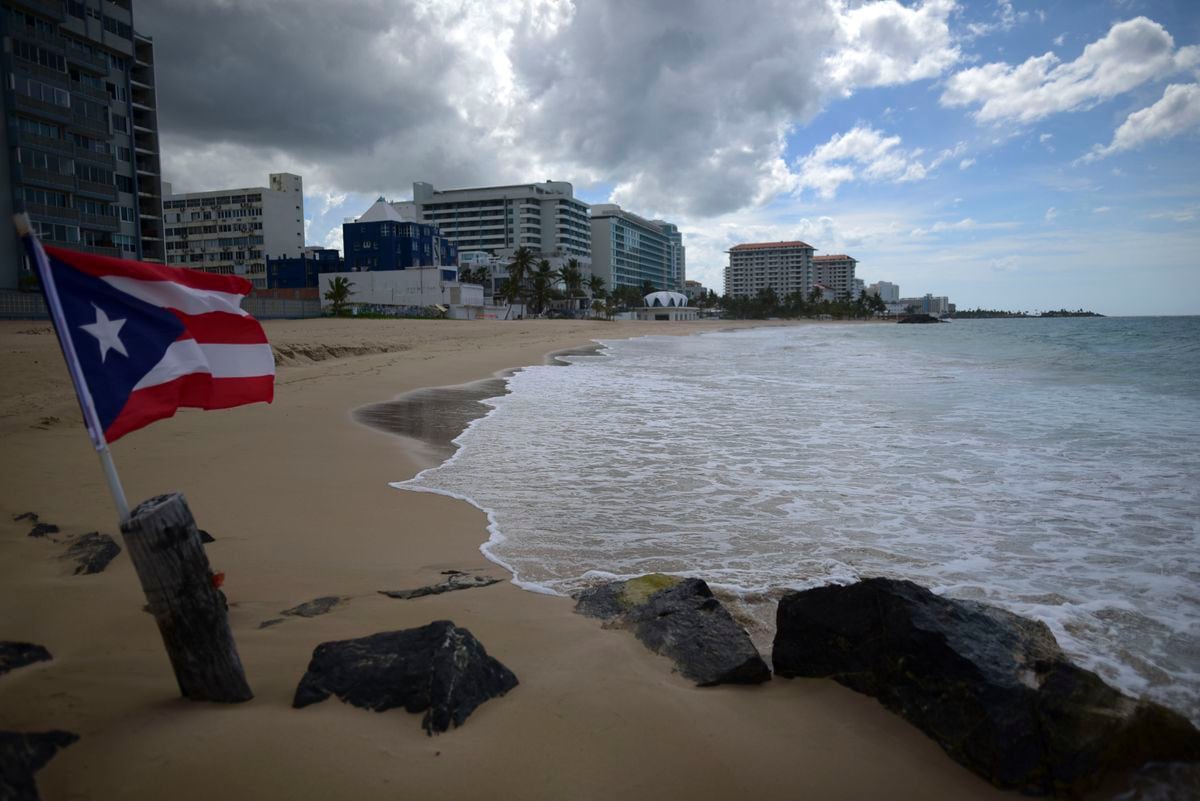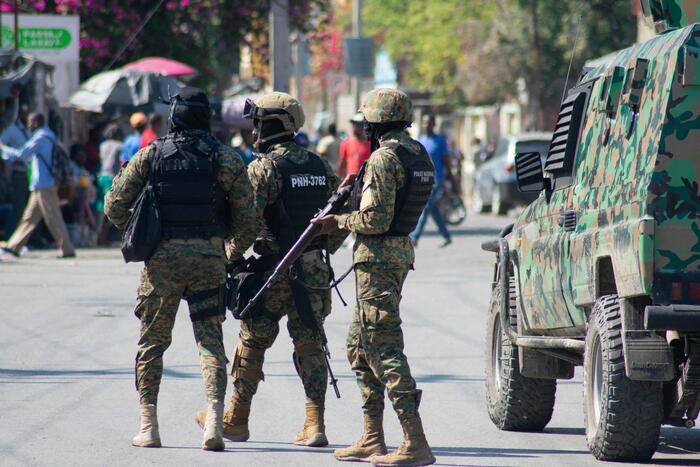Puerto Rico stands today at a turning point that will define its future.
This week, a federal judge in the United States ruled in favor of a plan that writes off billions of dollars in government debt, offering the Commonwealth some breathing space.
The agreement also generated millionaire profits for funds on Wall Street and compromised the pensions of government workers.
Immersed in an economic crisis for 16 years, the island can now pass the bitter pill to start a new chapter or repeat the mistakes of the past.
The global financial collapse of 2008-2009, and its subsequent sovereign debt crises in Greece, Ireland, and Portugal, eroded the astonishing effect of stories of failed nations.
But what happened in Puerto Rico is still historical and tragic.
For decades, the Caribbean nation relied on US companies for jobs in manufacturing and agriculture.
These were installed there because a tax incentive program allowed them not to pay income taxes.
In 1996, under the presidency of Bill Clinton, the US Government decided to end the tax incentive program gradually over 10 years. The logic was that the Government of Puerto Rico needed to generate its own taxes to cover the services that the US does not cover. In addition, legislators argued at the time, Puerto Rico had high and persistent poverty, so its economy should grow organically and stop depending on foreign companies that did not pay taxes.
The effect was harsh. By 2005, the economy shrank 2% and remained in negative territory for more than a decade. Unemployment began to climb and thousands of Puerto Ricans were forced to leave in search of work in the United States. In order to finance itself, the Government of Puerto Rico issued bonds in the international market and began to pay its current expenses with debt. When that wasn't enough, it stopped paying pensions to government employees like teachers. Fixed income and global markets specialist Cate Long remembers when, in 2012, she published an opinion column for the Reuters agency in which she warned the holders of those bonds that Puerto Rico would default on its debt payments.
“I said that Puerto Rico was the Greece of the United States and they called me crazy,” Long says over the phone. “I haven't thought about this in so many years! But I remember that the Governor of Puerto Rico and his entire political party came against me. However, people in the market listened and quietly started selling their bonds.” From that column, Long dedicated himself to doing his own research on the financial situation of the island and founded, together with a colleague, the information service Puerto Rico Clearinghouse.
Three years later, the prophecy was fulfilled and Puerto Rico defaulted on its debt payment. In 2017, then Governor Ricardo Rosselló issued a bankruptcy declaration, making Puerto Rico the first state in the American Union to take that step. (A couple of years later, Rosselló resigned after a cabinet scandal unrelated to bankruptcy.) Also in 2017, Puerto Rico was hit by Hurricane Maria, one of the worst national disasters in its history, which killed thousands of people and destroyed thousands of homes. A large part of the island was in darkness, without electricity, for months.
In those years, investors who had been early buyers of the bonds sold them to hedge funds for a much lower price. For every dollar the original investors paid, the hedge funds bought them for 60 or 70 cents, Long says. Known as “vulture funds”, these financial companies are dedicated to buying high risk bonds of default at a very low price and then launch legal pressure campaigns to receive full payment of the value of the bond.
Following the declaration of bankruptcy, the Barack Obama Administration created a government committee made up of US politicians called the Puerto Rico Financial Management and Supervision Board. The committee aroused rejection among many citizens in Puerto Rico, who argue that, because it is not a popularly elected committee, it is a US colonialist imposition.
For five years, "La Junta," as the committee is known in Puerto Rico, worked on a restructuring plan that could reduce the financial obligations of the island government.
As part of the agreement approved by a judge on Tuesday, the total debt was cut from 70,000 million to 34,000 million dollars, so that essential public services are preserved.
In exchange, the pensions of government employees such as teachers, for example, will stop adding up.
That is, the contribution will remain, but will not be adjusted for inflation or increased in the future.
The plan also includes a payment of nearly $7 billion in cash that is being made right now. “This is the saddest thing of all,” Long says of the deal approved this week, “the hedge funds, the ones that bought the bonds very cheaply, came in and traded for a very high return on their money. The real losers are the pension funds, the households and the workers whose pension funds invested their life savings in these bonds and lost it.”
Corruption is part of the reason Puerto Rico's financial management has had so many problems, Long says. “The Board has been another big disappointment to the people of the island because they expected them to come and clean up the corruption, not just get junk bonds in order, but address this massive amount of corruption in government and they have done nothing.” points out the specialist.
For Sergio Marxuach, Director of Public Policy at the Center for a New Economy, an independent research center in the capital, San Juan, the agreement presents an opportunity for Puerto Rico to attract new investment and design an economic growth strategy.
"That is truly what is going to help us get out of this problem," says the specialist, former Undersecretary for Economic Development and Commerce in the State, "Puerto Rico's longest-term problem has been the lack of growth."
“All countries compete for investment and to the extent that Puerto Rico presents a narrative out there that says it is bankrupt or that the economy is stagnant, there will be no confidence.
To the extent that Puerto Rico emerges from bankruptcy, a cloud rises over the economy,” says Marxuach.
The restructuring plan estimates that Puerto Rico will again face a deficit of close to 120 million dollars between 2035 and 2036, even if island legislators manage to approve changes that facilitate the creation of businesses, as well as the creation of programs that expand the force labor. "A lot of things can happen between now and 2035 and I think that assuming the worst scenario is not very reasonable either," says Marxuach. If Puerto Rico decides to take advantage of this moment to focus its efforts on attracting investment from a handful of industries, pharmaceuticals or renewable energy, for example, it would be breaking with the past and its mistakes.
If, on the other hand, the Government decides to go out and issue more debt to continue financing itself without a strategic plan to grow the economy, it would be taking the island down the same path that led it here.
“The Government of Puerto Rico and the people, the entrepreneurs, the business sector, we now have an opportunity to grow the economy, take certain measures to improve the business climate,” says Marxuach.
“Both the Board and the people who say that we are going to go to another direct bankruptcy are wrong.
It is very unlikely that everything will go wrong and it is very unlikely that everything will go well, "says the specialist, adding:" In the real world, it is most likely that some things will go well and others will not.
The question is, which of those variables are going to break in favor of Puerto Rico and which are going to break against?”
Subscribe here to the EL PAÍS América newsletter and receive all the key information on current affairs in the region















